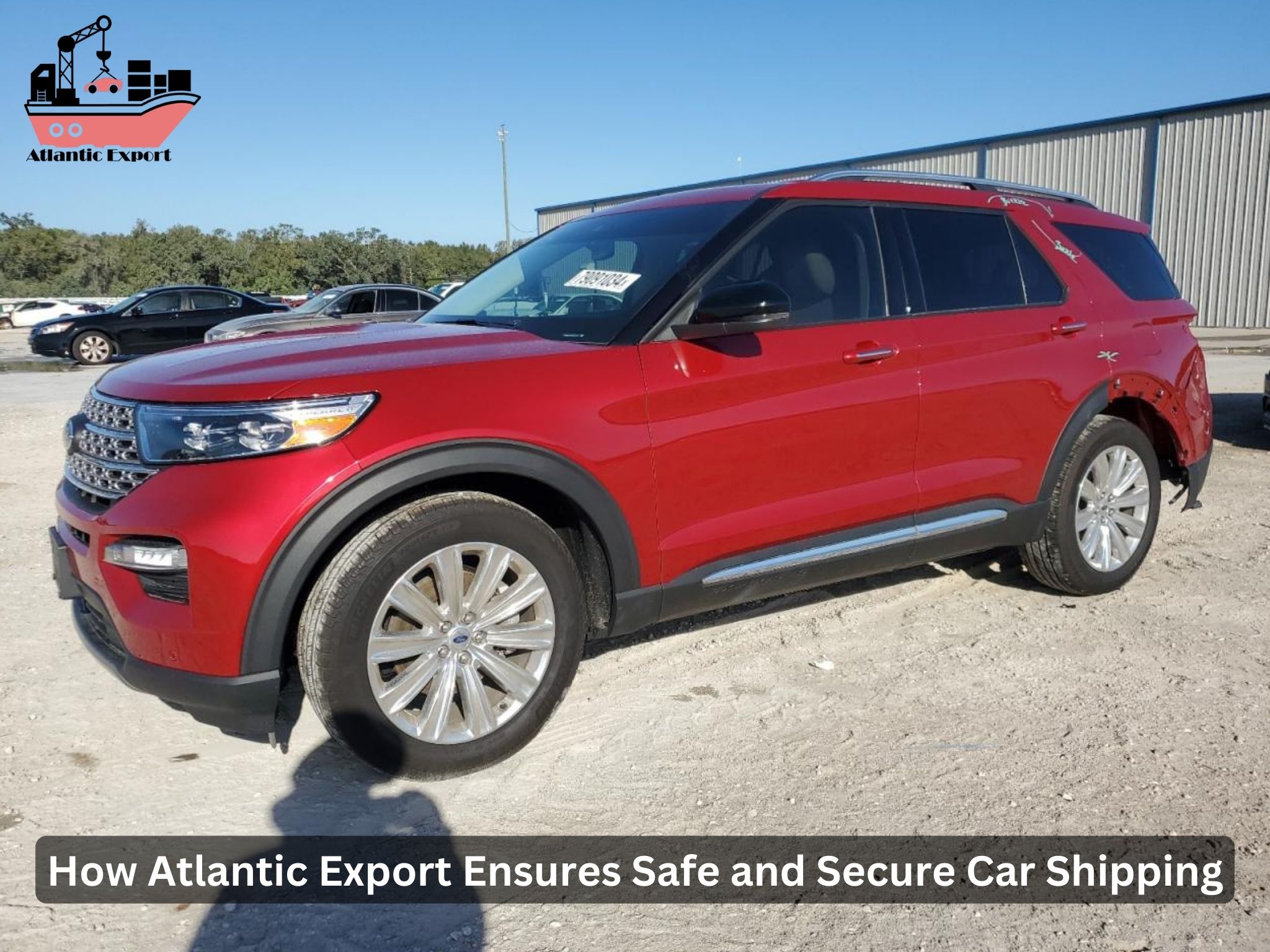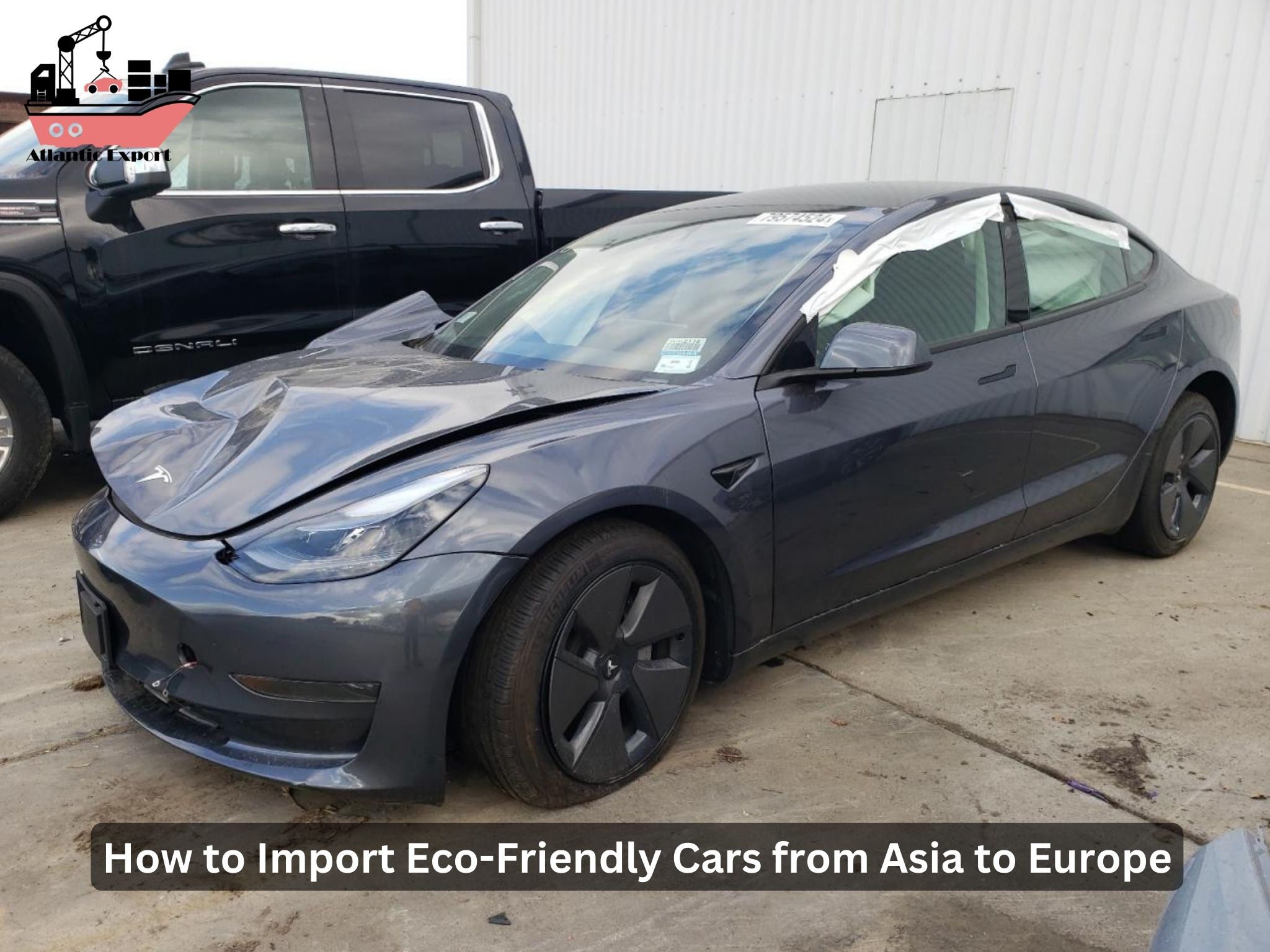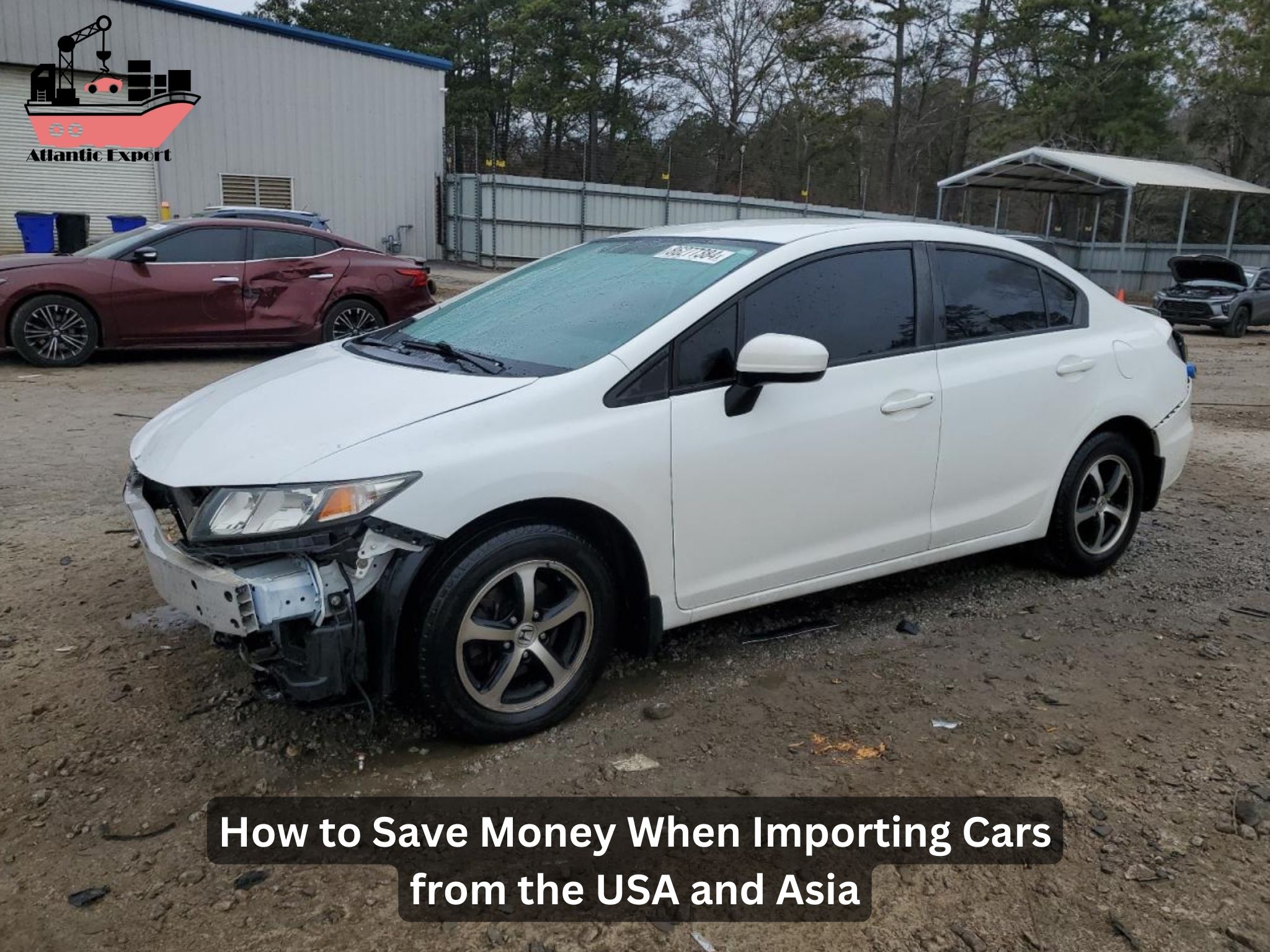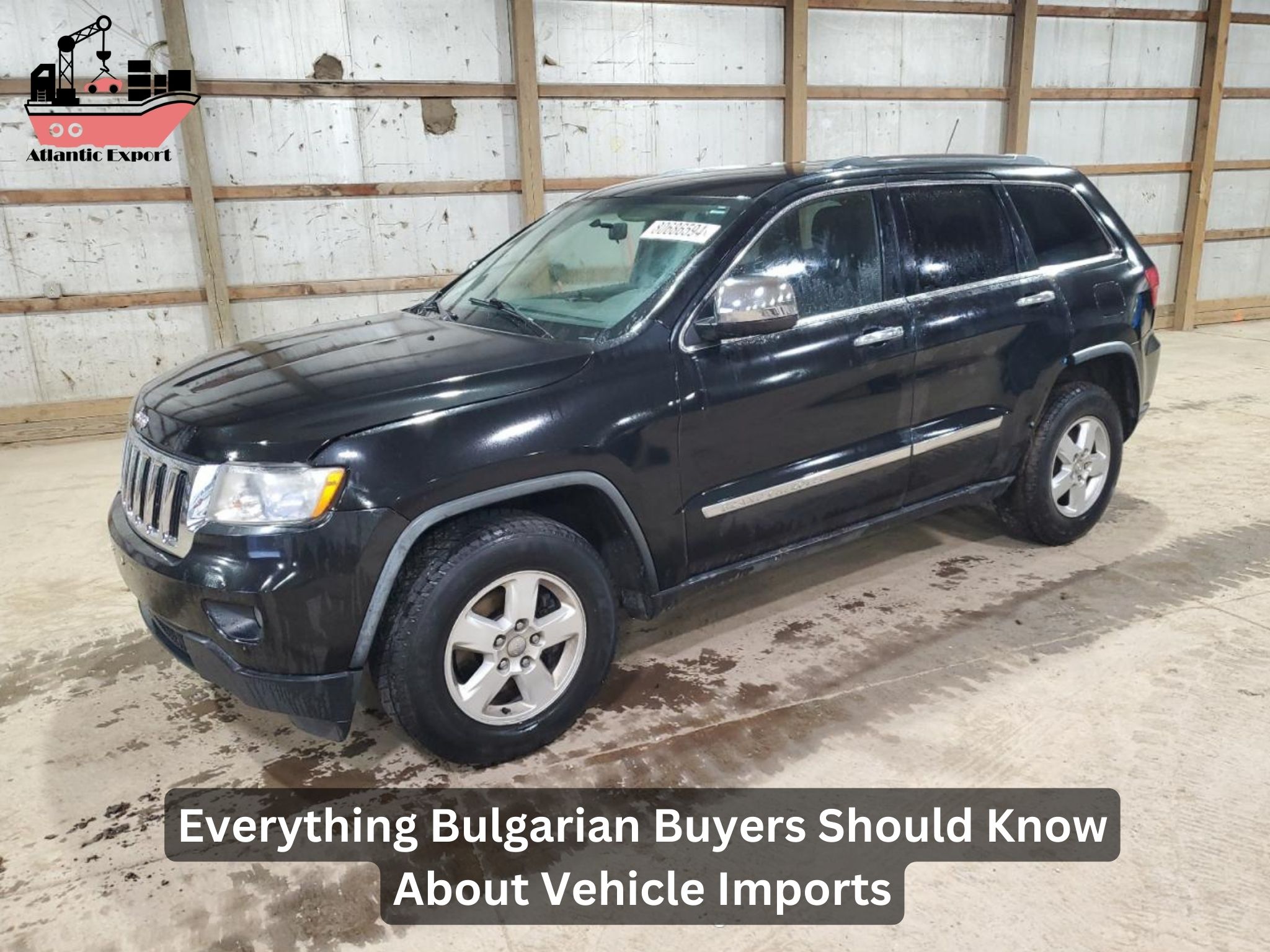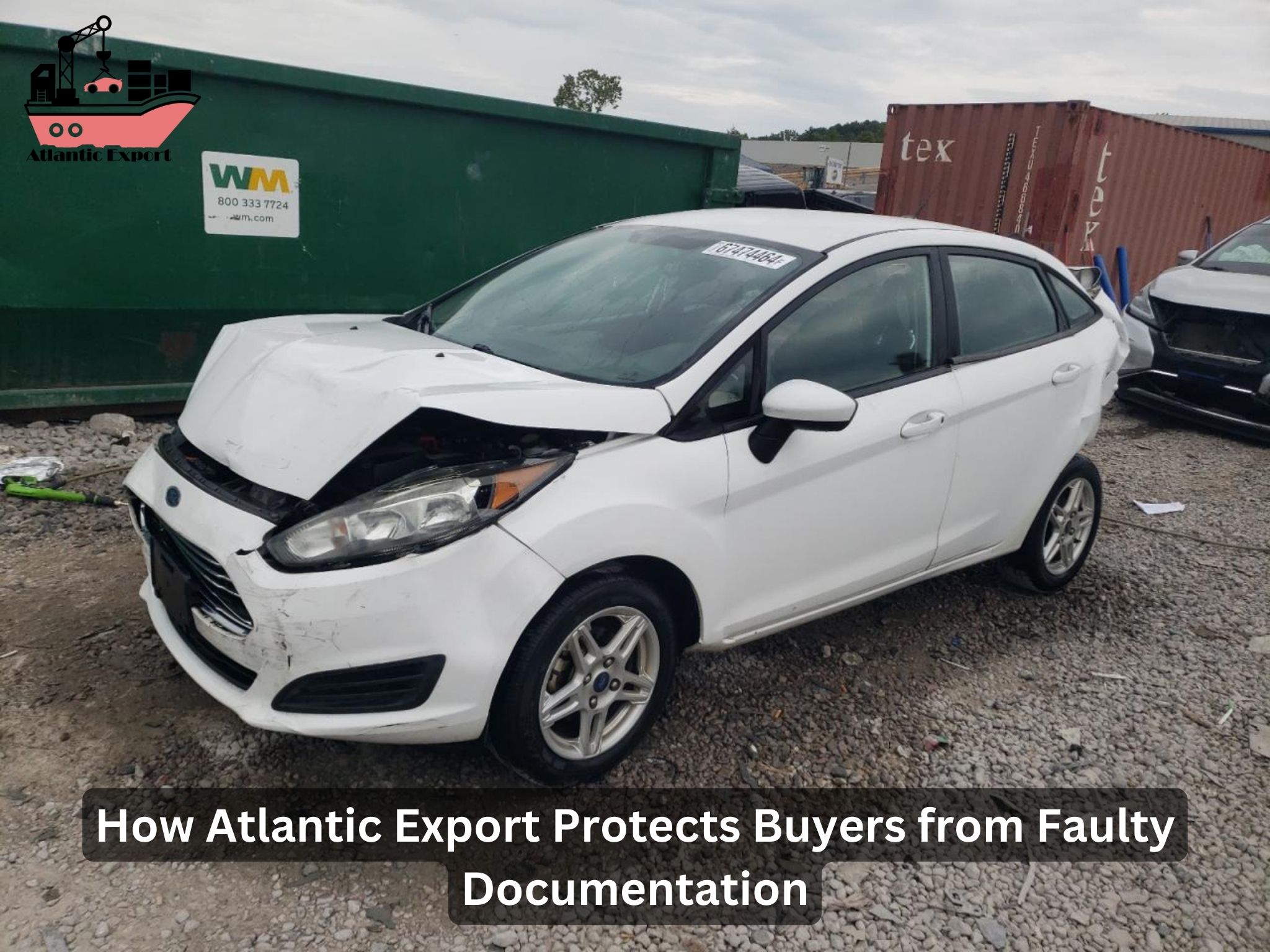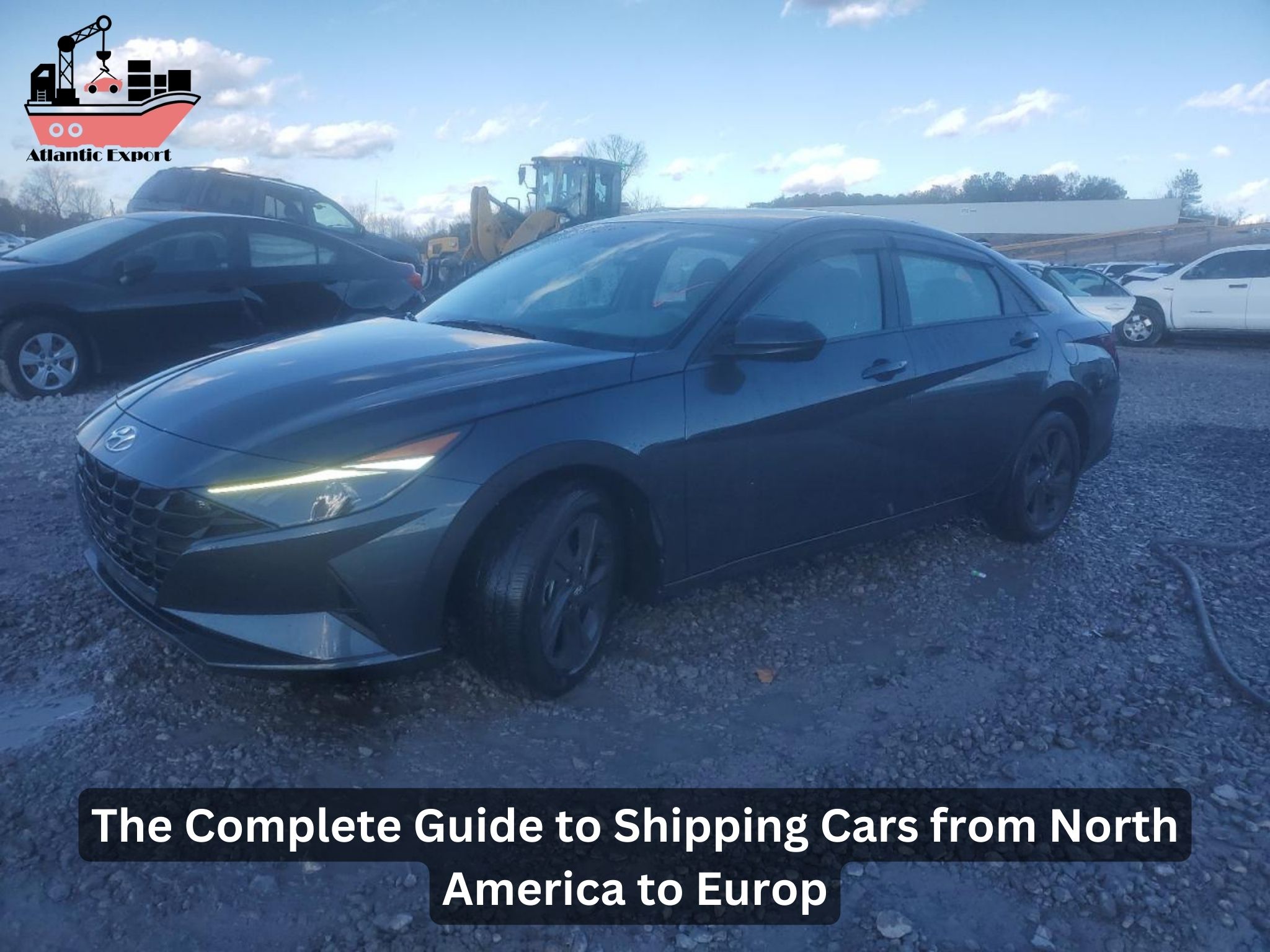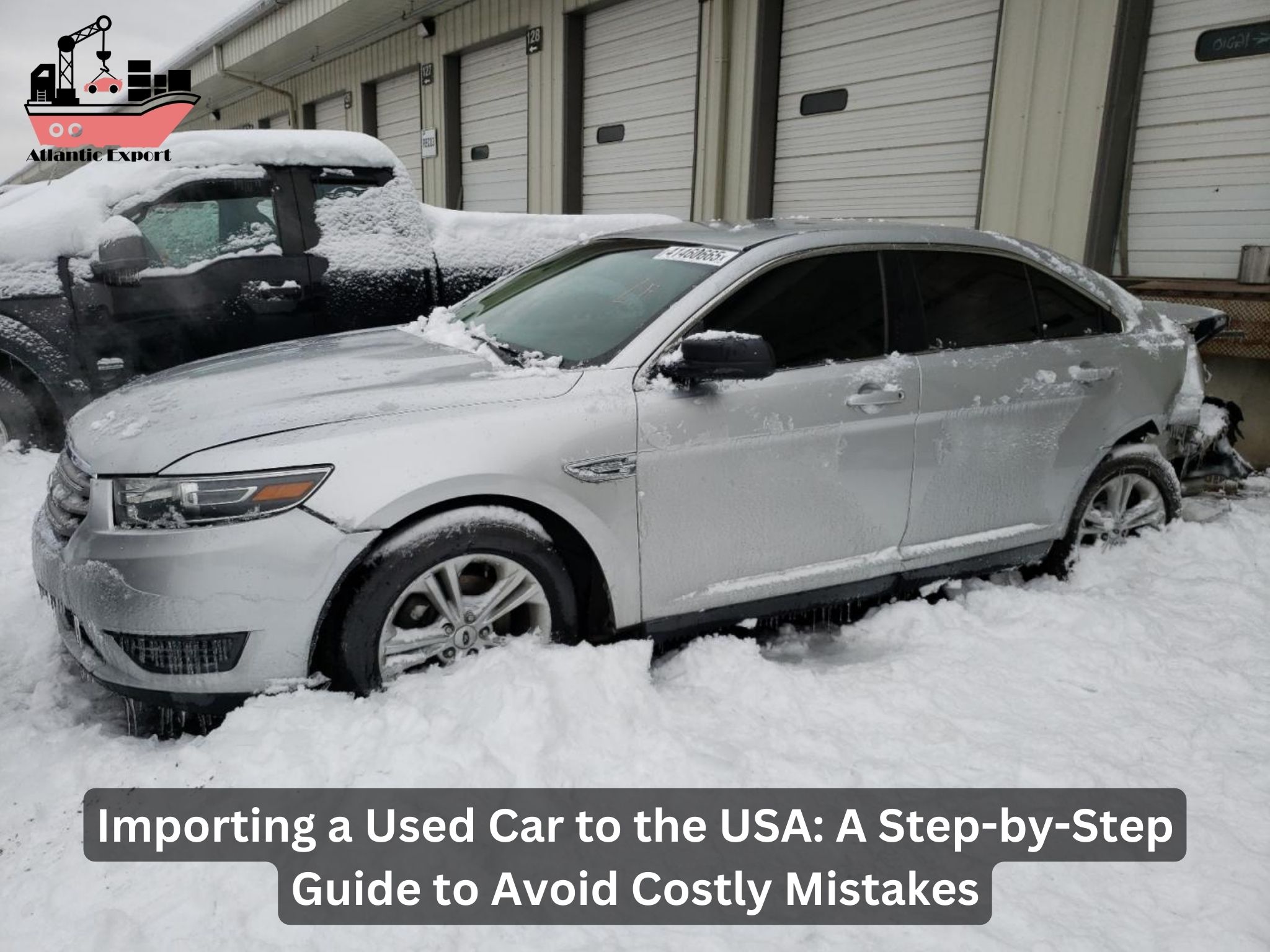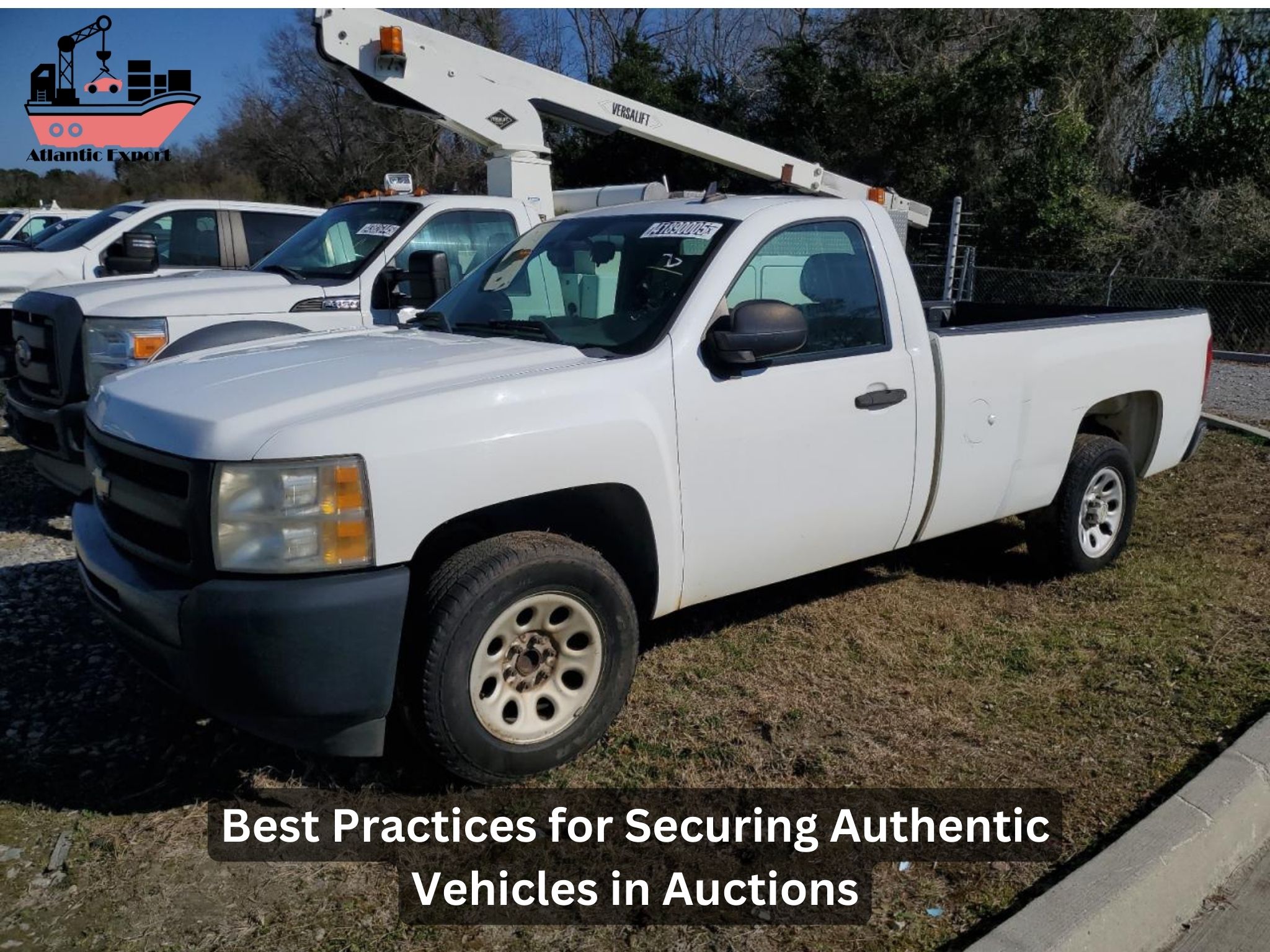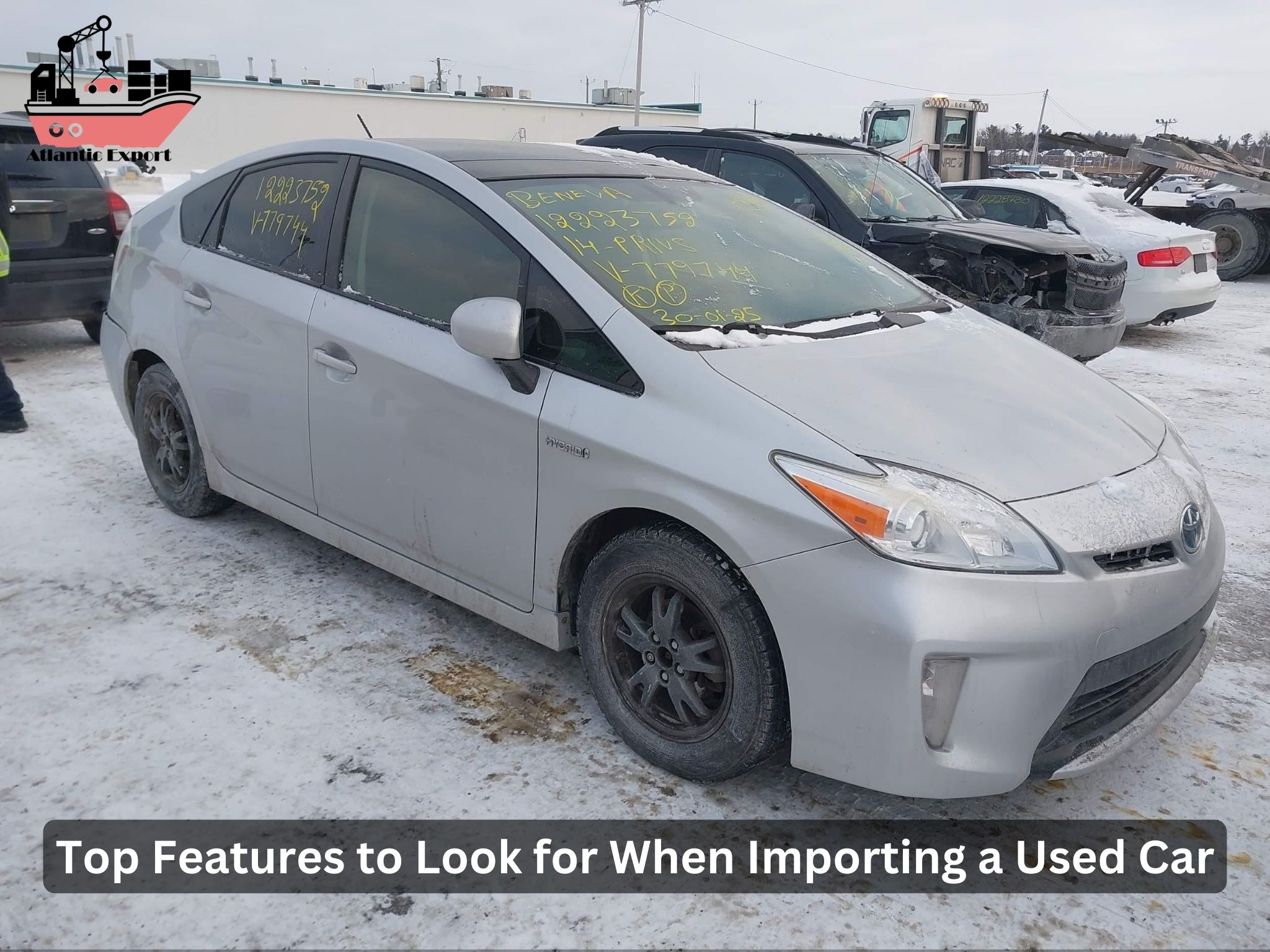When it comes to international car shipping, ensuring the safety and security of your vehicle is paramount. At Atlantic Export, we specialize in providing reliable car transport services that guarantee your auto reaches its final destination in pristine condition. Whether you’re shipping a high-value car or a standard vehicle, our logistics expertise, strong partnerships, and professionalism guarantees a seamless shipping process. In this comprehensive guide, we’ll delve into how Atlantic Export ensures secure transportation and why we are a trusted name in the car shipping industry.
Understanding the Car Shipping Process
The shipping process for vehicles involves several critical steps, each designed to ensure the safety and timely delivery of your car. At Atlantic Export, we follow a meticulous approach to international car shipping, which includes:
- Vehicle Inspection and Documentation: Before shipping, our team conducts a thorough inspection of your car to document its condition. This step is crucial for identifying any pre-existing damage and ensuring compliance with customs clearance requirements. We also handle all necessary documentation, including the bill of sale, title, and insurance paperwork, to streamline the process.
- Choosing the Right Shipping Method: Depending on your needs and budget, we offer multiple shipping options, including Roll-On/Roll-Off (RoRo), container shipping, and air freight. RoRo is ideal for standard vehicles, while container shipping provides added protection for high-value cars. Our experts will guide you in selecting the best method for your auto.
- Secure Loading and Transit: Our experienced drivers and carriers ensure that your vehicle is loaded onto the carrier or container with utmost care. We use state-of-the-art equipment to prevent potential damage during transit. For container shipping, we offer both shared and exclusive container options, depending on your preferences.
- Customs Clearance and Compliance: Navigating customs regulations can be complex, but our team handles all aspects of customs clearance to ensure a smooth process. We ensure compliance with all destination country requirements, including ownership verification and payment of duties.
- Final Delivery: Once your car arrives at the port, we coordinate its ground transportation to your specified address. Our carriers are equipped with GPS tracking systems, allowing you to monitor the shipment in real-time until it reaches its final destination.
Why Choose Atlantic Export for Car Shipping?
At Atlantic Export, we pride ourselves on being a leader in the international shipping industry. Here’s why thousands of customers trust us with their vehicle shipping needs:
- Experienced and Professional Team: Our team comprises experienced drivers, logistics experts, and customer service professionals who are dedicated to providing the highest level of service. We understand the intricacies of international car shipping and work tirelessly to ensure your auto is handled with utmost care.
- Comprehensive Insurance Coverage: We offer insurance options tailored to your needs, providing protection against potential damage during transit. Our policies cover everything from minor scratches to major repairs, giving you peace of mind throughout the shipping process.
- Affordable Vehicle Transport: While we prioritize safety and security, we also understand the importance of affordable vehicle transport. Our pricing is transparent, with no hidden fees, and we offer competitive shipping costs without compromising on quality.
- Strong Partnerships: Over the years, we’ve built strong partnerships with leading logistics companies, carriers, and ports worldwide. These relationships enable us to offer reliable and efficient car shipping services to destinations across Europe, the United States, and beyond.
- Customer-Centric Approach: At Atlantic Export, your satisfaction is our top priority. From the moment you request a quote to the final delivery of your car, we provide personalized service and expert tips to ensure a hassle-free experience.
Factors to Consider When Shipping a Car Internationally
When planning international car shipping, several factors can influence the process and costs. Here are some essential considerations:
- Shipping Method: The choice between RoRo, container shipping, and air freight depends on your vehicle type, budget, and timeline. RoRo is cost-effective but offers less protection, while container shipping is ideal for high-value cars.
- Destination Country Regulations: Each destination country has specific customs regulations and documentation requirements. Our team ensures compliance with all regulations, including ownership verification and payment of duties.
- Insurance Coverage: Opting for comprehensive insurance is crucial to protect your car against potential damage during transit. We offer customizable insurance options to meet your needs.
- Shipping Costs: The costs of international car shipping depend on factors such as the shipping method, destination, and vehicle size. We provide transparent pricing and work with you to find the most affordable vehicle transport solution.
- Timeline: The time required for car shipping varies based on the destination and shipping method. Our team provides accurate estimates and keeps you informed throughout the process.
Expert Tips for a Smooth Car Shipping Experience
To ensure a seamless car shipping experience, follow these expert tips:
- Research Your Options: Compare different car shipping companies and services to find the best fit for your needs. Look for companies with a proven track record, such as Atlantic Export.
- Prepare Your Vehicle: Clean your car thoroughly and remove any personal belongings. Document its condition with photos and ensure it’s in good working order.
- Verify Documentation: Double-check all documentation, including the title, bill of sale, and insurance paperwork, to avoid delays.
- Choose the Right Insurance: Opt for comprehensive insurance coverage to protect your car during transit.
- Stay Informed: Keep track of your shipment using our real-time tracking system and stay in touch with our team for updates.
FAQs
1. What is the safest method for shipping a car internationally?
The safest method depends on your vehicle type and budget. Container shipping offers the highest level of protection, while RoRo is cost-effective for standard cars.
2. How long does international car shipping take?
The time required varies based on the destination and shipping method. On average, it takes 2-6 weeks for international car shipping.
3. What documents are required for car shipping?
Required documentation includes the title, bill of sale, insurance paperwork, and customs clearance forms.
4. Does Atlantic Export offer insurance for car shipping?
Yes, we offer customizable insurance options to protect your car against potential damage during transit.
5. How can I get a quote for car shipping?
You can request a quote by contacting our team at 770-696-4275 or visiting our website. We provide transparent pricing with no hidden fees.
